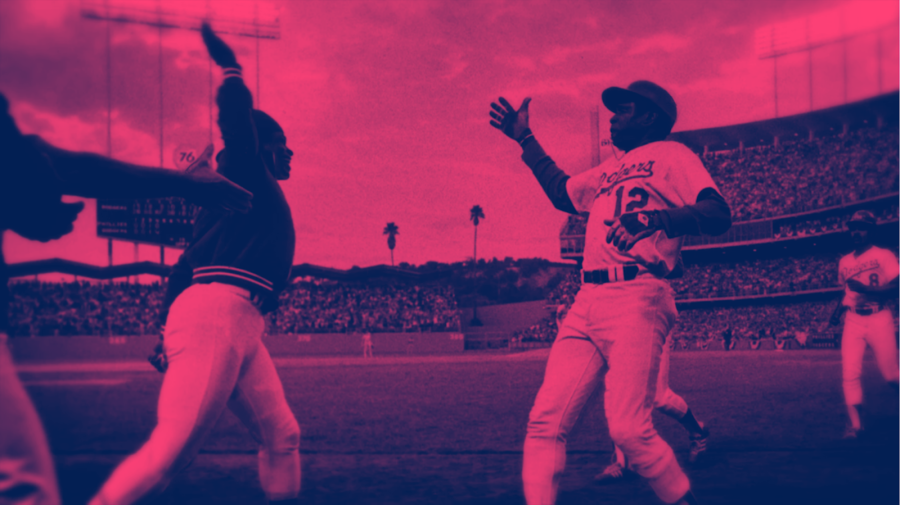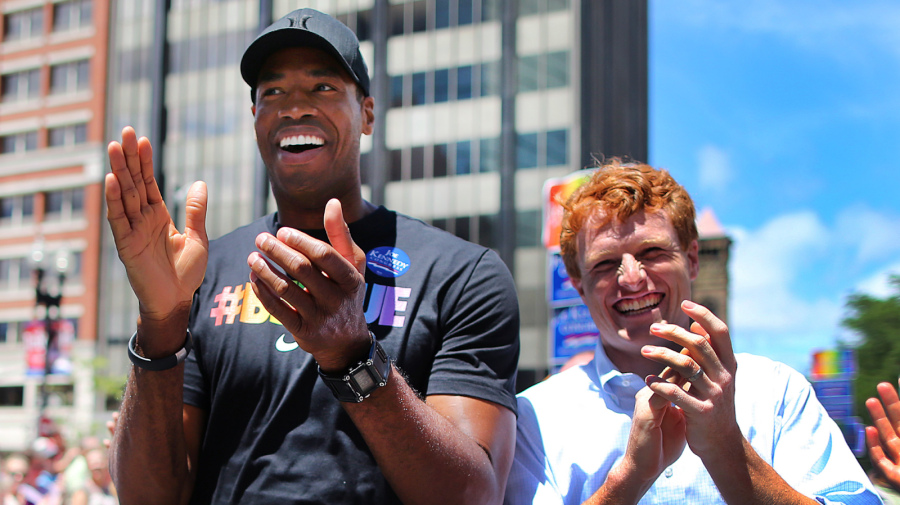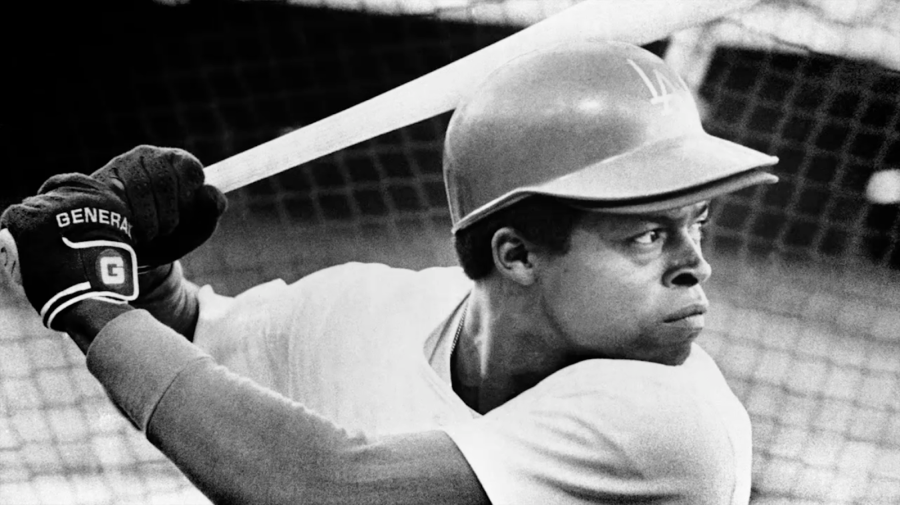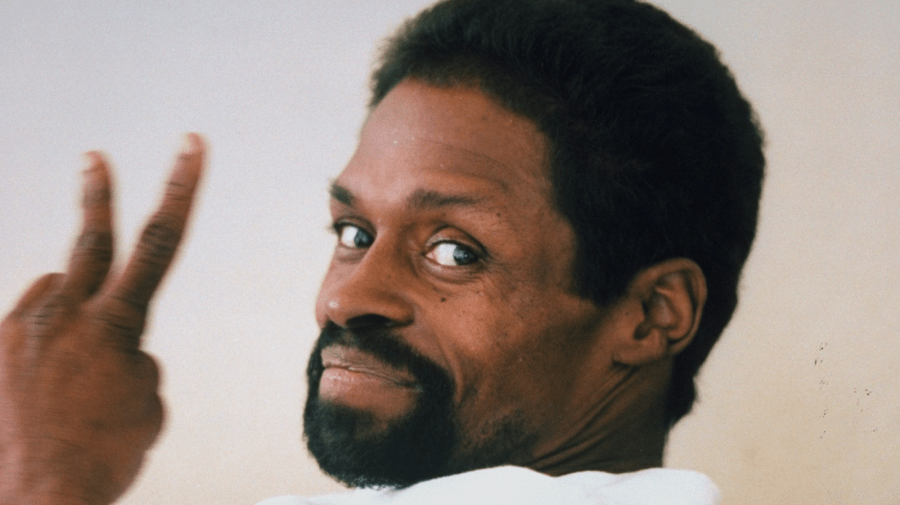
If you’re a baseball fan, you could be forgiven for never hearing of Glenn Burke until now. An outfielder for the L.A. Dodgers and the Oakland Athletics in the late ‘70s, Burke was mostly a backup, playing in a little over 200 games over the course of four seasons. Purely as a baseball player, Burke was considered an impressive athlete who never quite put it all together to become truly great.
However, Burke is the rare professional athlete who lived a life that was about much more than his on-field performance in sports. For one thing, Burke was the first Major League Baseball (MLB) player ever to be out as gay with his teammates, managers and team executives. That’s an incredibly brave claim to fame, and it makes him an important figure in the history of gay rights and the fight for equality more broadly.
And yet, there’s much more to Burke’s life than even that. He was also probably the inventor of the “high five,” if such a thing can be said to have an inventor. Of course, the slapping of hands in celebration or greeting was probably “invented” in lots of places at lots of times by lots of people. But when Glenn Burke and Dusty Baker rose up for an impromptu, improvised high five after Baker crushed his 30th home run of the season in October of 1977 at Dodger Stadium, it set the high five in stone forever.
Let’s take a look at what made Glenn Burke such a special and important figure in the history of sports and the fight for equality, and explore how the high five became an enduring part of that legacy.
The First Openly Gay Professional Baseball Player
In 2013, when the NBA’s Jason Collins became the first man to be an active gay athlete in the four major American sports (baseball, football, basketball and hockey), it was a watershed moment. Collins himself admitted at the time, “I’m glad I’m coming out in 2013 rather than 2003. The climate has shifted; public opinion has shifted. And yet we still have so much farther to go.”

The shifting climate Collins was referring to didn’t begin in 2003, either. Collins’ announcement in 2013, in addition to being an important historical moment, also helped bring to light many of the stories of gay men in American sports who had been unable to be publically out over the course of the preceding decades.
Glenn Burke’s story was one of these. Burke had been an incredible athlete as a youngster — as a basketball player, he was the Northern California Basketball Player of the Year, leading his Berkeley High School squad to a perfect record and a state championship in his senior year. He was a great baseball player too, though, which was more appealing given his height of 5’10”. The Dodgers drafted him in 1972, and he played in their minor league system until he got called up to the major league club in 1976.

Once he was with the Dodgers, he did not specifically try to keep his sexuality a secret. He was out to the people closest to him, and spoke openly with teammates, executives and even sportswriters about it. That those sportswriters chose not to write about it is, perhaps, as good an example as any of how times changed between the 1970s and Jason Collins’ announcement in 2013.
While Burke’s teammates on the Dodgers adored him and were saddened by his loss in the clubhouse when the team traded him away in 1978, his relationship with the team’s management was more complicated. Burke claimed that general manager Al Campanis offered him a sizable bribe to participate in a sham marriage. According to at least one story, Burke replied, “I guess you mean to a woman.”
Burke also befriended Tommy Lasorda Jr., — a.k.a “Spunky” — the son of Dodgers’ manager Tommy Lasorda. Spunky wasn’t out either, but in Burke’s 1995 memoir, Out at Home, he wrote that he and Spunky had talked at the time about Tom Sr.’s homophobia. Spunky passed away from complications from AIDS in 1993, and his father never acknowledged his son’s homosexuality. Burke believed that his association with Lasorda’s son was part of why he was traded away from the Dodgers in 1978.
Burke had retired from MLB by 1980, and in 1982 he officially came out in an article for Inside Sports. He soon appeared on the Today Show with Bryant Gumble as well. He was mostly received with silence — quite a contrast to the huge amounts of attention received by men who’ve come out in American sports in recent years.
Glenn Burke and the High Five
Before he left baseball, Burke had time to leave his mark — not for his batting average, home runs, or spectacular plays in the outfield, but for his celebrations. Most accounts of Burke’s career mention the fact that he was a beloved member of the Dodgers. Part of that was being the first up to congratulate his teammates after a big moment.
And that’s what leads us to the famous story of the invention of the high five. On October 2, the last day of the 1977 regular season (the Dodgers would go on to lose in the World Series to the New York Yankees), the Dodgers weren’t playing for much. They’d already guaranteed themselves a matchup with the Philadelphia Phillies in the National League Championship Series.
In the 6th inning, down 2-0, Dusty Baker came up to the plate. He blasted a home run out to center field for his 30th home run of the season. That made the Dodgers the first team in baseball history to have four players each with 30 — Baker, Ron Cey, Steve Garvey and Reggie Smith. Burke, who was pinch hitting and happened to be waiting on deck, met Baker at the plate with his hand stretched high over his head. Years later, Baker remembered: “[Burke’s] hand was up in the air, and he was arching way back.…So I reached up and hit his hand. It seemed like the thing to do.”
Amazingly, immediately after this, Burke stepped up to the plate and hit a home run himself. It was the first home run of his major league career, and one of only two he hit before he retired. And so it was that the high five was cemented in baseball lore, and has been passed down through the generations to the present day.
Glenn Burke After Baseball

A combination of injuries and prejudice towards his sexuality managed to lead to Burke’s decision to leave baseball. While many of his teammates loved him, having to endure listening to slurs and battling preconceived notions about gay athletes was eventually too much. Leaving the Oakland Athletics, he started hanging around the Castro district of San Francisco. He put the experience this way: “I was making money playing ball and not having any fun….Now I’m not making money, but I’m having fun.”
In the early ‘80s, Burke participated in the first Gay Games in San Francisco, and was a star in a local gay softball league. But what he was really known for was the high five. According to ESPN, he “would regularly sit on the hood of a car — whichever one happened to be parked in front of a gay bar called the Pendulum Club — flash his magnetic smile and high-five everyone who walked by.” The writer Michael J. Smith, who wrote the piece in 1982 in which Burke publicly came out, called the high five, “a defiant symbol of gay pride.”
Unfortunately, in spite of all this, Burke’s life after baseball was difficult. In 1987 he broke his leg when a car hit him crossing the street. He was often addicted to drugs and couldn’t keep a steady job. In 1993 he was diagnosed with HIV; he passed away just two years later. The high five is the piece of Burke that manages to live on, and captures something of the joy that characterized the good times of his life. His sister, Lutha Davis, said after his death, “Now when something great happens in life, people do the high-five.” It’s hard to imagine leaving a more enduring legacy than that.

 Seth Landman
Seth Landman




